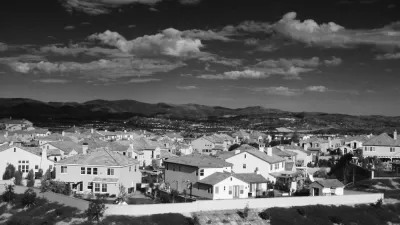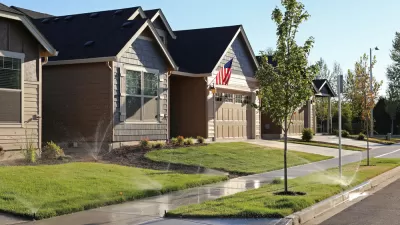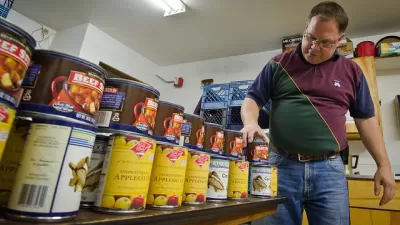"We can’t understand what’s working in America’s cities unless we also look at what’s not working in the vast suburbs that surround them," writes Rebecca Burns.
Rebecca Burns examines the poverty in suburban Atlanta, especially places in Cobb County. Cobb County, according to Burns, "for decades has been synonymous with Atlanta’s suburban affluence but now finds itself facing an epidemic of the very poverty its residents were determined to avoid when they moved out of the city."
"Long considered the epitome of red-state suburban comfort, a quintessentially middle-class kind of place where the median income is $65,000 and people pride themselves on owning their own homes, Cobb County now has other superlatives attached to its name. Between 2000 and 2010, the county’s poverty rate doubled to 12 percent. Just last month, the Urban Institute reported that of all counties in the United States, Cobb is where low-income people have the least chance of finding affordable places to live."
Burns describes Cobb County as the "flip side of the national urban boom," which is to say that it's not a problem unique to Cobb County. "If the old story of poverty in America was crumbling inner cities and drug-addled housing projects, the new story is increasingly one of downscale strip malls and long bus rides in search of ever-scarcer jobs."
The article is a thorough long read, during which Burns examines many examples and personal stories from the Cobb County experience—while also explaining their relevance to suburban locations around the country.
FULL STORY: Sprawled Out in Atlanta

Alabama: Trump Terminates Settlements for Black Communities Harmed By Raw Sewage
Trump deemed the landmark civil rights agreement “illegal DEI and environmental justice policy.”

Study: Maui’s Plan to Convert Vacation Rentals to Long-Term Housing Could Cause Nearly $1 Billion Economic Loss
The plan would reduce visitor accommodation by 25% resulting in 1,900 jobs lost.

Planetizen Federal Action Tracker
A weekly monitor of how Trump’s orders and actions are impacting planners and planning in America.

Wind Energy on the Rise Despite Federal Policy Reversal
The Trump administration is revoking federal support for renewable energy, but demand for new projects continues unabated.

Passengers Flock to Caltrain After Electrification
The new electric trains are running faster and more reliably, leading to strong ridership growth on the Bay Area rail system.

Texas Churches Rally Behind ‘Yes in God’s Back Yard’ Legislation
Religious leaders want the state to reduce zoning regulations to streamline leasing church-owned land to housing developers.
Urban Design for Planners 1: Software Tools
This six-course series explores essential urban design concepts using open source software and equips planners with the tools they need to participate fully in the urban design process.
Planning for Universal Design
Learn the tools for implementing Universal Design in planning regulations.
Caltrans
Smith Gee Studio
Institute for Housing and Urban Development Studies (IHS)
City of Grandview
Harvard GSD Executive Education
Toledo-Lucas County Plan Commissions
Salt Lake City
NYU Wagner Graduate School of Public Service





























